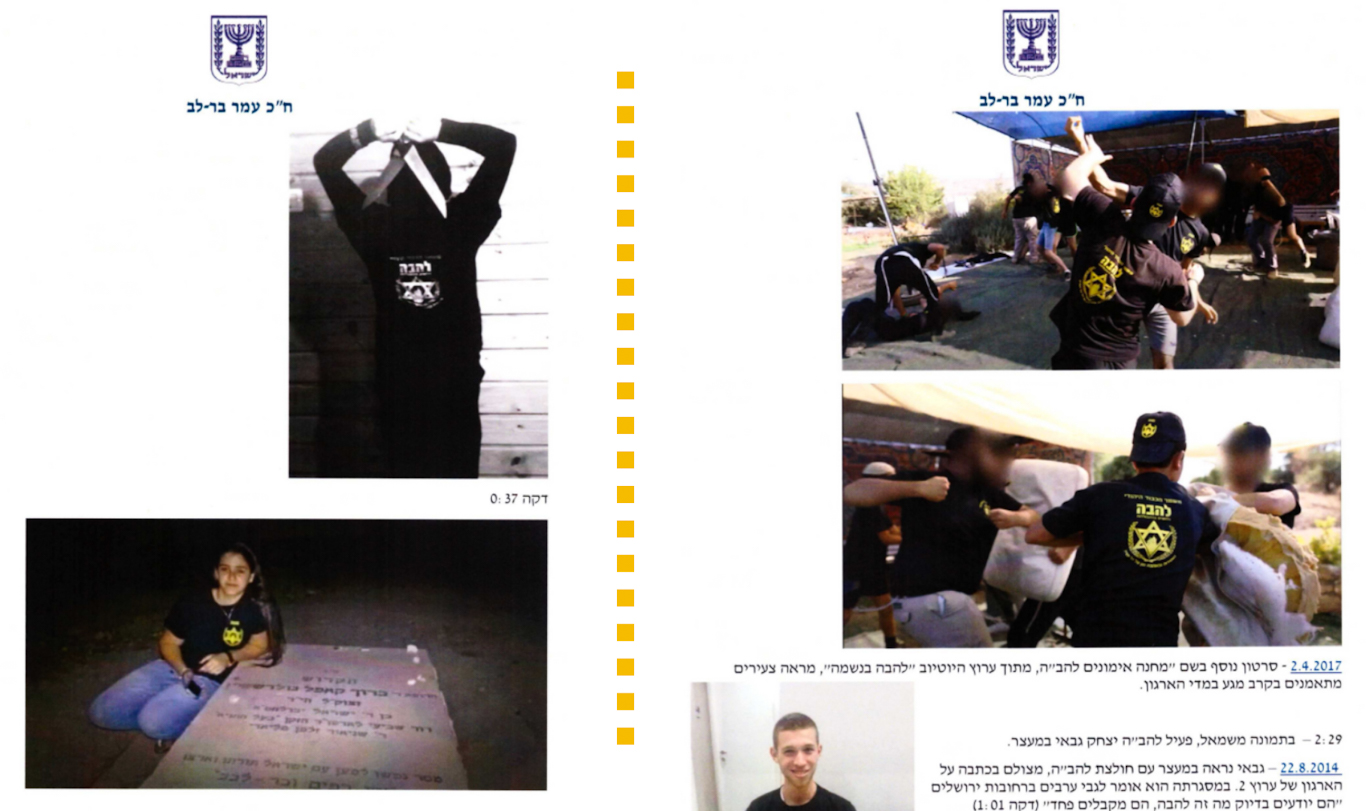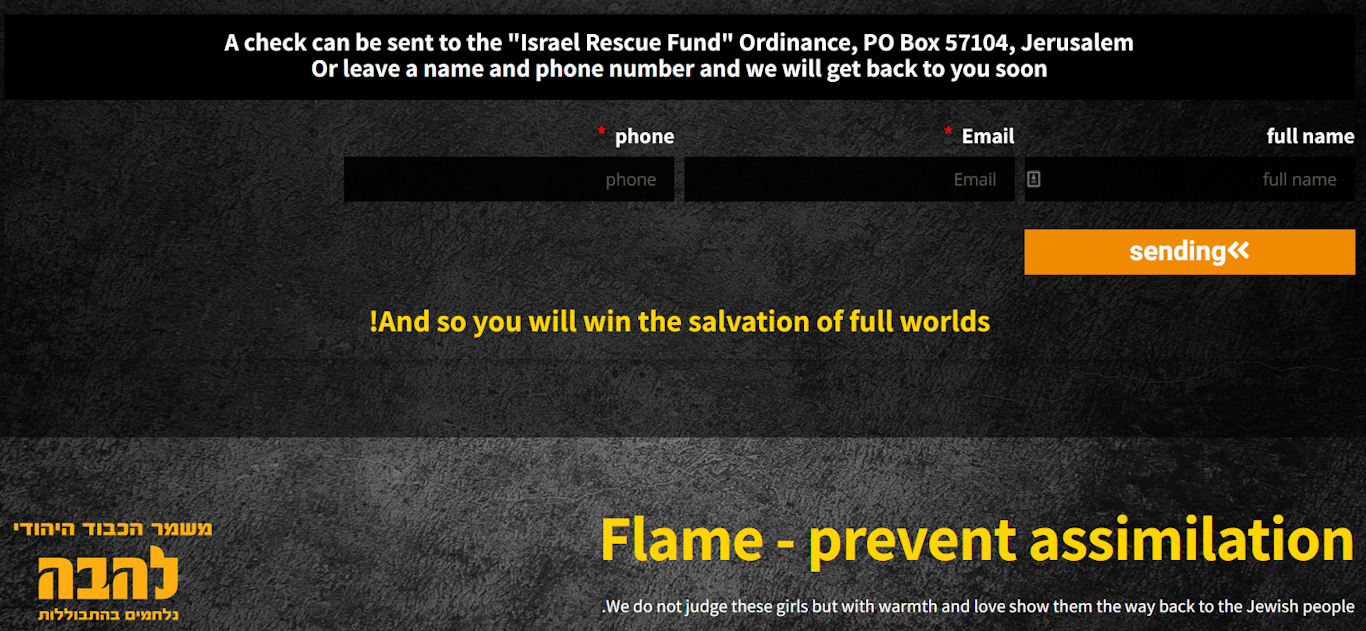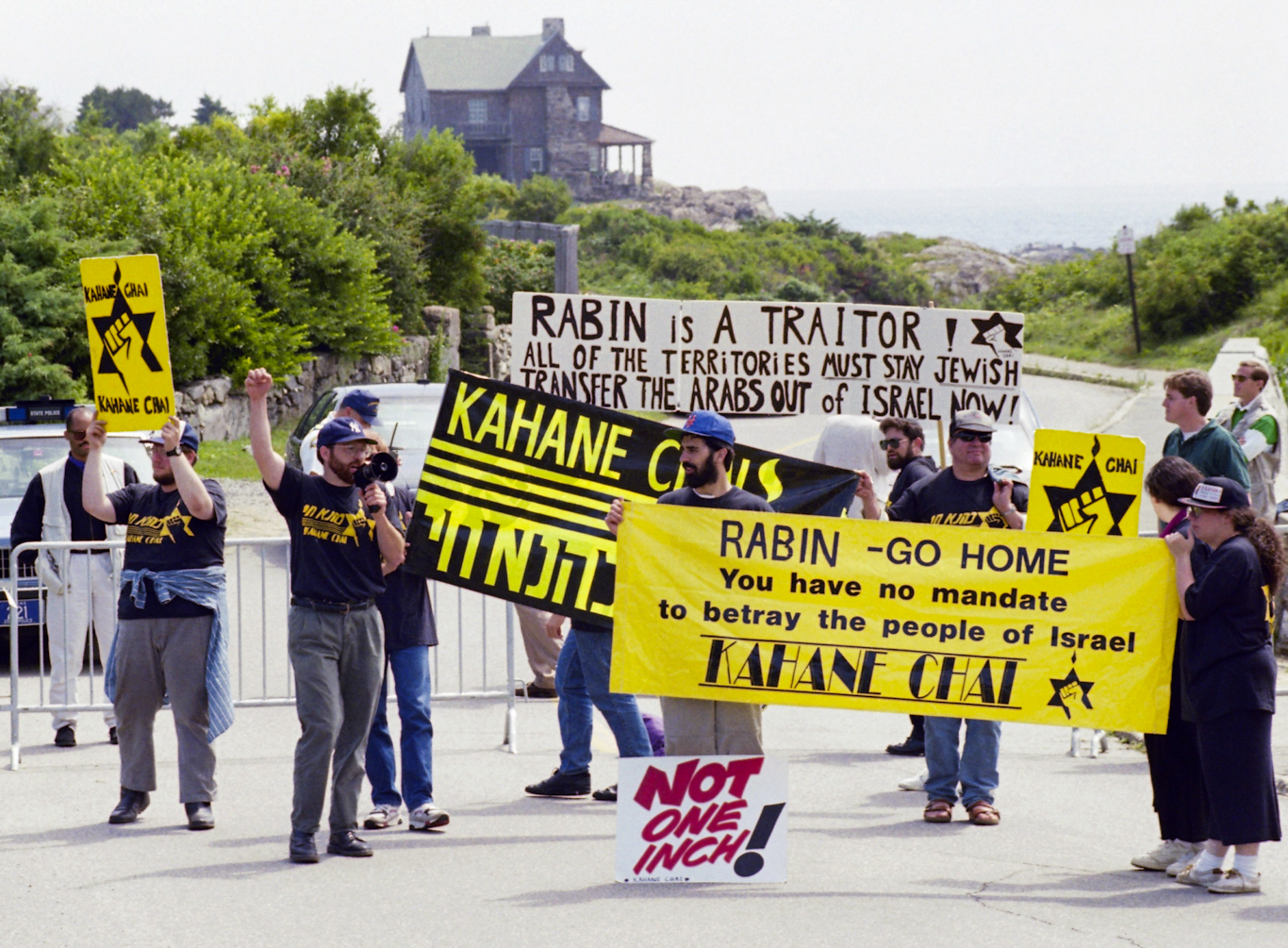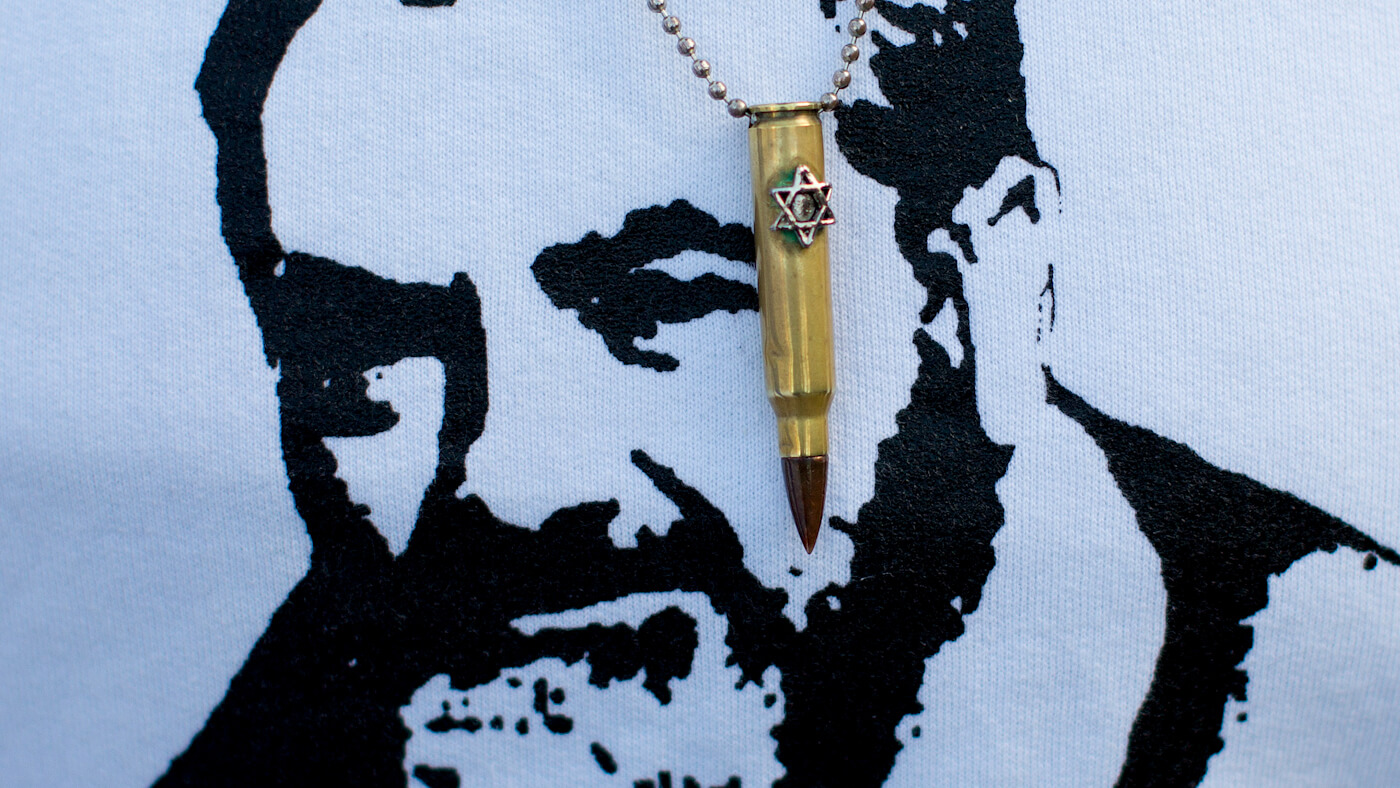WASHINGTON — Last month, the United States decided to remove the Israeli extremist group Kahane Chai from its list of “foreign terror organizations.” The State Department justified its decision by claiming the organization is inactive, but experts suggest the group’s ideology is resurging.
Kahane Chai is an extension of the Israeli political party Kach, founded by Rabbi Meir Kahane in 1971. The Jewish extremist ran for parliamentary elections several times under Kach before winning a seat in 1984. Shortly after, the Kach Party was outlawed by Israel’s parliament for inciting racism. Kach split into two groups — the Kach faction and Kahane Chai, which was run by Kahane’s son — after Kahane was assassinated in 1990.
The U.S. added Kahane Chai to its foreign terror list in 1997 following the 1994 Ibrahimi Massacre, when Kahanist Baruch Goldstein shot down 29 worshippers at the Ibrahimi Mosque in the occupied West Bank city of Hebron. Now the U.S. argues Kahane Chai hasn’t been involved in terror since 2005, when an Israeli soldier and Kahane Chai member left his post and shot four Palestinian citizens of Israel.
For David Sheen, investigative journalist and Kach expert, this logic is faulty because the group is still operating — just under different names. “Kahanists themselves and all the various vehicles in Israel — whether they call themselves the Jewish Legion, the Committee for the Safety of the Roads, or Lehava — are all different branches but part of the same movement,” Sheen said. “They’re straight terrorists and all Kahanists.”

According to the United Nations, Kahane Chai operates under many alternative names, including Jewish Legion, New Kach Movement, and the Yeshiva of the Jewish Idea.
Its supporters have also gone on to create their own organizations, such as the Jewish anti-assimilation group Lehava, founded by Kahanist Bentzi Gopstein and Israeli political party Otzma Yehudit (Jewish Power), led by firebrand politician and Kahanist Itamar Ben-Gvir. Today, activists consider both of these groups as reincarnations of Kach.
The money behind the movement
A host of U.S. and Israeli foundations funnel money to Kach-affiliated organizations. As previously reported by MintPress News, the Israeli nonprofit Foundation for the Salvation of the People of Israel – or Hakeren Lehazalat Am Israel (HLAI), in Hebrew – funds Lehava and has several suspicious ties to the group and Ben-Gvir.
“There are direct connections between this nonprofit and the former Kach and Kahane Chai movement,” Eran Nissan – chief operating officer at Mehazkim, an Israeli progressive digital movement – told MintPress. “Not only with the ideology and the work, but also with people.”
Gopstein and Ben-Gvir’s wife, Ayala Ben-Gvir, are both listed as founders in the foundation’s official financial documents provided to Israel’s Registrar of Associations. Itamar Ben-Gvir did not respond to requests on his spouse’s involvement with HLAI and its association with Lehava.
Other founders include Elyakim Neiman, former secretary of the Kach movement and chairman of Yeshiva HaRaayon HaYehudi, or the Jewish Idea Yeshiva, a seminary founded by Kahane and a U.S.-designated terror organization; and Levi Hazan, a Kahanist convicted of participating in a bus shooting that wounded seven Palestinians in 1984.
The Registrar of Associations is currently investigating whether HLAI is merely serving as a front for Lehava funding. The foundation did not respond to MintPress’ requests for comment.
Israeli Minister of Internal Security Omer Bar-Lev and the chairman of Israel’s Foreign Affairs and Defense Committee, Ram Ben-Barak, are working to designate Lehava as a terrorist organization. Last year, Bar-Lev sent a letter to the Registrar of Associations claiming Lehava is the executive arm of HLAI and asking it to dissolve the foundation for acting in violation of Israeli law. His research found that donations to Lehava are made through HLAI. A donation receipt for Lehava contains HLAI contact information and Lehava’s logo and states payment is sent to HLAI. Lehava’s donation page even says checks can be mailed to HLAI.

Nissan described the various interlocking organizations as a Kahanist nexus.
“The first arm of this ecosystem is Hakeren Lehazalat Am Israel – they are behind the scenes, they’re funding the operation. The next arm is Lehava, which is the boots on the ground, the military arm,” Nissan said. “And the last arm that is connected fully to these other two arms is the political arm, which is the political party of Otzma Yehudit.”
Lehava is also supported by the American tax-exempt organization Tomchei Tzedaka. Lehava’s U.S. wing links to Tomchei Tzedaka’s website through its donation button. Tomchei Tzedaka did not respond to requests for comment on the relationship between the two entities.
Other American tax-exempt charities – such as Charity of Light, the American Friends of Yeshivat HaRa’ayon HaYehudi, the Central Fund of Israel (CFI), and the Traditional Fund – also support Israeli Kahanist activity. Charity of Light funnels money to Chasdei Meir, an Israeli charity named after Kahane. According to its most recent tax filing, Charity of Light gave $33,950 to Chasdei Meir in 2019. The American Friends of Yeshivat HaRa’ayon HaYehudi supports Yeshivat HaRa’ayon HaYehudi and gave the religious institution $88,500 in 2019, according to its most recent tax report.
Charity of Light, Chasdei Meir, and American Friends of Yeshivat HaRa’ayon HaYehudi appear entangled together. Levi Hazan is the director of both Charity of Light and American Friends of Yeshivat HaRa’ayon HaYehudi. His phone number and email address are listed on Chasdei Meir’s contact page. Charity of Light and American Friends of Yeshivat HaRa’ayon HaYehudi have the same phone number on their tax filings. These organizations did not respond to requests for comment.
The Traditional Fund has also contributed to the American Friends organizations of Chasdei Meir and Yeshivat HaRa’ayon HaYehudi. According to the latest available tax report, the Traditional Fund gave $13,000 to American Friends of Chasdei Meir and $47,000 to American Friends of Yeshivat HaRa’ayon in 2019. The fund did not respond to press inquiries.
CFI is linked to Honenu, an Israeli legal-aid organization notorious for providing grants to Jewish terrorists like Kahanist Meir Ettinger. The fund is named on Honenu’s donation page. CFI did not return requests for comment.
Kahanism ‘infiltrating the Democratic Party’
But it’s not just American charities that are intertwined with Kahanists. “The Kahanists have actually infiltrated the Democratic Party for decades,” Sheen said. “Going back to the 1970s, the most racist rabbis in the United States — the biggest supporters of Kahane during his lifetime and after his death — actually had a lot of political power in the Democratic Party.”
Sheen explained that rabbis like Moshe Tendler and Herbert Bomzer maintained close relationships with Democratic Party officials (specifically district attorneys) who depended upon them for Jewish votes.
“Fast forward to today – we have Democratic Party officials on the payroll of the number-one funder of the Kahane movement, Simon Falic,” Sheen said. The Falic family, owners of the major retail chain Duty Free Americas, have supported Lehava-linked Hakeren Lehazalat Am Israel in the past, providing a total of $60,000 to the association from 2007-2017. The money is wired through the Falic’s Israel-based foundation, the Segal Fund.
But Falic hasn’t just supported Kahanist causes. He’s also contributed to the political campaigns of Democrats Hillary Clinton, Kamala Harris, Rep. Ted Deutch, and Rep. Debbie Wasserman Schultz.
Terror turned mainstream
Kahane was alienated during his single parliamentary term in the 1980s. Israeli politicians would boycott his parliamentary speeches and dismiss his legislative proposals. But where Jewish supremacist beliefs were once met with disdain, they now are welcomed with open arms in Israeli society.
Sheen explained how Kahane disciple Itamar Ben-Gvir has been met with the opposite reaction from his peers while in office. “[T]oday the [Israeli political party] Likud lawmakers make a beeline towards [Itamar Ben-Gvir]. They don’t allow him to come to their events. They go to him to attend his events,” Sheen said. “He is leading them.” Sheen emphasized this demonstrates that while the Israeli mainstream once rejected Kahane and his ideas, now they are embracing that ideology.

Dr. Shaul Magid, author of “Meir Kahane: The Public Life and Political Thought of an American Jewish Radical,” said the Israeli mainstream has changed, whereby moderate lawmakers now agree with their colleagues on the right. “The Israeli government today is a settler government,” Magid said. “If you look at people like [Israeli Prime Minister Naftali] Bennett, and then you look at people like [Israeli Foreign Affairs Minister Yair] Lapid or [Israeli Defense Minister Benny] Gantz, on the question of Israel-Palestine, there’s not much difference between them. The center has become the right.”
Magid explained that, when that happens, Kach doesn’t appear as extreme because Jewish supremacist thought is now part of the mainstream.
And nowhere is this more evident than on the streets. Just a few weeks ago, nationalists stomped through Jerusalem’s Muslim Quarter in a brazen display of Zionist fanfare during the city’s annual Flag March, an event commemorating Israel’s capture of East Jerusalem in 1967. Among the Israeli flags waved were those belonging to Lehava and Kahane Chai.
As the U.S. declares Kahane Chai dead, the streets of Jerusalem suggest otherwise.
Feature photo | An Israeli hardline nationalist supporter of Israeli army medic Sgt. Elor Azaria, wears a t-shirt with a drawing of Rabbi Meir Kahana, who founded extreme right wing Jewish movements, the Jewish Defense League and the ultranationalist Kach political party, outside the Israeli military court in Tel Aviv, Israel, Jan. 4, 2017. Oded Balilty | AP
Jessica Buxbaum is a Jerusalem-based journalist for MintPress News covering Palestine, Israel, and Syria. Her work has been featured in Middle East Eye, The New Arab and Gulf News.


